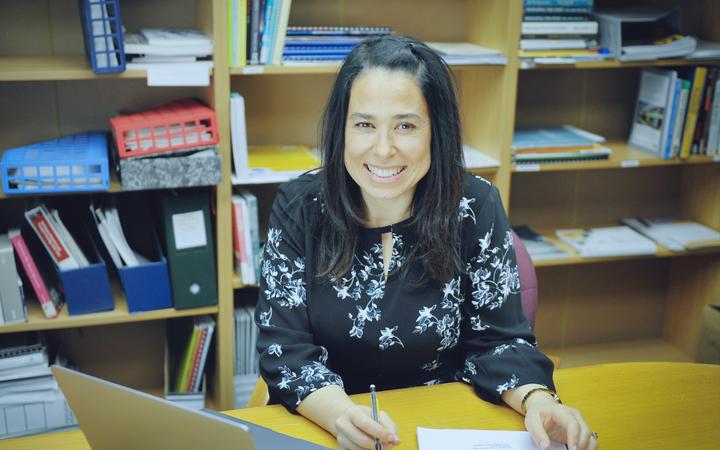Pasifika warned to be vigilant against rheumatic fever
Monday 14 March 2022 | Written by RNZ | Published in Pacific Islands, Regional

Israel and Uriah Ne'emia Photo: Jenny Ne’emia
The parents of a young boy with rheumatic fever are urging adults, particularly in Pacific communities, to take sore throats and rashes in children seriously.
About 33 percent of the cases in 2021 were among Pacific peoples.
There is currently no vaccine and if left untreated can lead to heart disease or death.
Israel Ne'emia, 13, dreams of becoming a rugby great but recently it has been hard to walk or even get out of bed.
The Auckland boy was diagnosed with rheumatic fever when he was seven years old.
He loves playing rugby league and was in a training session when father dad Emanuel Ne'emia noticed something was a bit off.
"He was acting really weird, for example just passing the ball, dropping the ball. It was like he was in lala land and he has never been like that before," Ne'emia said.

Israel's mother noticed he also had a rash, she took him to White Cross but was told he was essentially fine but she kept pushing. took her son to a GP and he was then sent to Waitākere Hospital.
Israel was there for a week in a room with six other children who were mostly from Māori and Pacific communities.
He is the eldest of four boys and has a twin brother who was in shock at the news.
"Actually sad ... we're very close. I usually just ask him if he is alright and that, seeing if he needs help with anything, just checking on him whenever he is in pain," said his twin Uriah Ne'emia said.
It turned out Israel had a small leak in his heart. His parents had no idea what rheumatic fever was until they were handed a booklet.
For Israel, it means ongoing treatment including very unpleasant injections.

"When I first got the jab at the hospital it was really painful, it was stinging after when they pulled it out and that," Israel said.
Right now it is the only option to avoid acute rheumatic fever turning into rheumatic heart disease which could end with open-heart surgery.
"These painful injections are given every month for 10 years or more, and some people end up having them for the rest of their lives," Dr Dianne Sika-Paotonu, of the Rheumatic Fever and Penicillin Research Programme, said.
Her team is looking to develop a new penicillin injection that is more acceptable to patients.
This is something Israel's mum Jenny believes would bring her great comfort.
"I hate seeing him in pain, you just want to take that pain so he doesn't have to feel it," Jenny Ne'emia said.
Israel has been lucky that his disease was caught early because his parents noticed something was up and acted.
Israel wants to make it to the NRL. "Roger Tuivasa-Sheck really inspired me," he said.
A spokesperson for the Blues said Israel's favourite player Roger Tuivasa-Sheck has heard about his story and he would like to take some signed gear to Israel or someone else may deliver it while he was inside the rugby bubble.
Early diagnosis is something Minister for Pacific Peoples Aupito William Sio wishes could happen in all cases, or even better for the disease to be avoided entirely because it is preventable.
Aupito was 15-years-old when he was diagnosed with rheumatic fever, like Israel he too had dreams of being a sports star, but he had to pivot his dreams. He spent three months in bed, "it was just debilitating, I was feeling pain in my joints and I just didn't know why".

Aupito wants to emphasise the importance of catching the signs early.
"What I didn't do at that time was to talk to someone about the pain I was feeling in my joints, and just shrugged it off as sort of knocks from sports. If you are ever feeling not quite good about your body talk to someone and the pain that you are feeling.
"The approach that the government has taken, which I have led for Pasifika is the wellbeing, holistic approach because poverty and deprivation contribute to several illnesses including rheumatic fever, and what we have done as a Government is to ensure where the system is failing, and there is a lot of evidence for that in the last several decades, we've got to the target the specific support to then accelerate support to the vulnerable," he said.
The University of Auckland's medical faculty is working on developing a vaccine to help prevent rheumatic fever, the government has invested $10 million towards it.
What is acute rheumatic fever?
"Acute rheumatic fever is the body's autoimmune response to an untreated bacterial infection of the throat or the skin," Dr Sika-Paotonu said.
"This particular throat or skin infections are caused by group A Streptococcal bacteria or GAS bacteria for short.
"If very severe or repeated episodes recur and are left untreated, this can lead to rheumatic heart disease ... permanent heart damage can occur as a result. RHD remains a major cause of mortality worldwide, at the moment we don't have a GAS vaccine," she said.
How is it treated?
"So what happens is that a painful monthly injection of a type of penicillin is given to prevent any more GAS infections," Dr Ska-Paotonu said.
"By preventing GAS infections we are preventing acute rheumatic fever and stopping rheumatic heart disease from happening.

"Penicillin injections start when someone is first diagnosed with acute rheumatic fever.
"It is a painful and nasty way of being protected for ARF but it is all that is available right now. What is needed is a new penicillin, there is work that is being done to develop a new penicillin," Dr Sika-Paotonu said.














































